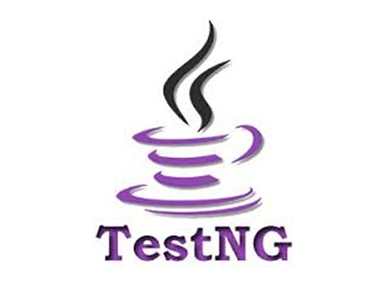In the DevOps era, software checking is as important as ever, with major changes in the way it is performed. Actually, it turned into DevOps continuous testing. It means that testing is not the final stage of the software development anymore: it is brought into the mainstream of cycles and begins as early as possible. Read on this post to learn more about testing in DevOps.
Make SaM Solutions your DevOps services provider – and enjoy faster time to market and lower release costs.
What Is Testing in DevOps?
DevOps is a progressive method of development and deployment that simplifies and streamlines processes among different team silos, enabling developers, operation specialists, QA engineers and analysts to cooperate better and deal with tight deadlines.
Another crucial feature of modern quality assurance is automation. Today, it is typical to build software in short sprint cycles, and it would be impossible to run a large number of the required control cases manually. In DevOps QA testing, automation is a must for a successful performance, as it reduces the number of repetitive tasks and shortens the time needed to obtain quality checking results. Automation is the biggest quality maintainer and speed promoter.
The role and skills of testers have also been reshaped. Today, QA testers transform into automation engineers who possess more technical skills, understand both application functionality and its technical environment, know the basics of coding and are able to analyze it. They know how to utilize automation tools and create scripts in parallel with development.
Unlike before, a tester is not an isolated member, but rather an essential part of the team who is involved in the process from the very beginning. Automation engineers ensure quality during the whole process and validate the right functioning of the developed application.
Continuous Testing Benefits
There are four basic ongoing processes in the DevOps culture:
- Continuous integration
- Continuous delivery
- Continuous testing
- Continuous monitoring
All of them are heavily intertwined. Continuous delivery and integration are impossible without controlling and monitoring since they need quick assessments of changes for frequent high-quality releases.
Software testing for DevOps is an integral part that has some clear benefits, as it:
- Provides fast and continuous feedback
- Excludes errors at early stages
- Enhances the checking process efficiency
- Accelerates the rate of change
- Allows flawless continuity throughout SDLC (system development life cycle)
- Allows developers to bring new features to market faster
- Ensures the safety of the system
- Allows managers to make better trade-off decisions
As DevOps breaks the barriers between Dev and Ops and encourages better coordination among various silos, it ensures that everyone takes responsibility for the quality. Therefore, checking is embedded along the entire product development process and has become everyone’s job.
Developing a DevOps Testing Strategy
The adoption of DevOps in your company will definitely have a powerful impact on control strategies. As it’s impossible to automate everything, you need an automation strategy to get maximum ROI from time and money spent. A well-planned strategy can increase the speed of development and free up teams to concentrate on more essential tasks. Here is a so-called DevOps testing tutorial that will help you develop the right automation strategy.
Choose the Right Cases to Automate
What cases do you choose for automation: repetitive tests, high-risk cases, large data sets or checks for different browsers and environments? It depends on the service you are developing and on your team’s capabilities Your task is to automate the cases that will bring the most benefits for the development process and the whole organization.
Implement Automation Throughout a Sprint
Speedy releases can be achieved only if the development and examination are finished simultaneously at the end of the sprint. That’s why quality assurance should begin as early as possible. Keyword-based tests can be written before the development of new functionalities, as they correlate with the task but don’t go into detail. During the process, an automated unit testing takes action, writes scripts as soon as the code is available and runs continuously.
Continue to Apply Automated Cases
Created cases can become complicated and irrelevant after a while, which is why you should consider building flexible tests. The best solution is to write small cases without overloading them with dozens of steps beginning from the top. Instead, break apps into smaller steps and check them separately.
The second way to create automated tests that will last long is to make them independent on the UI. Don’t include the names of the interface elements in the script, as they may change while the development moves on. Instead, use the backend functions to keep test cases relevant over time and protect them from inevitable changes.
Tools for Testing in DevOps
How do effectively test in DevOps and automate processes with minimum investment and efforts? Fortunately, there are a lot of open-source automated checking tools that may be of help. They assist organizations with configuration, integration and delivery needs, help save time and automate various processes. Here, we describe a couple of numerous freely distributed checking tools.

Appium is an open-source test automation framework for utilization with native, hybrid and mobile web apps. It drives iOS, Android and Windows apps using the WebDriver protocol. Appium aims to automate any mobile app from any language and any framework, with full access to backend APIs and DBs from the code.


Cucumber is a tool for running automated tests on the basis of Behavior Driven Development (BDD) — a practice that examines systems rather than a code. Cucumber merges specification and documentation into one cohesive unit. Thus, your documents are always up-to-date.
JUnit 5 is a simple unit testing framework that can be easily integrated with Eclipse, Ant or Maven, and provides features such as fixtures, test suites, JUnit classes and test runners. It is used by Java developers to write repeatable cases that increase programming speed and improve the code quality.

Selenium is a customized, portable framework for web applications. Selenium IDE is a full-fledged integrated development environment for authoring checks using a domain-specific language (Selenese) to write scripts in a number of popular programming languages, including Java, C#, Groovy, Perl, PHP, Python and Ruby. It is also a record/playback tool for developing tests.

TestNG is a framework that covers all categories of tests: unit, functional, end-to-end, integration, etc. It provides powerful functionalities, such as flexible configuration, annotations, support for data-driven testing and parameters, default JDK functions for runtime and logging, supported by a variety of tools and plug-ins (Eclipse, IDEA, Maven, etc.). These advanced functionalities offer benefits to both developers and QA engineers. To use TestNG properly, it is required to install JDK 5 or higher.
In today’s world of digital devices and a highly competitive environment, agility and continuity are key to success. SaM Solutions provides its customers with DevOps as a service and embedded software testing to ensure the high availability and reliability of software.



















 The Latest 15 Information Technology Trends in 2024
The Latest 15 Information Technology Trends in 2024 Top 10 Embedded Software Development Tools
Top 10 Embedded Software Development Tools IaaS vs. PaaS vs. SaaS: What’s the Difference?
IaaS vs. PaaS vs. SaaS: What’s the Difference? 10 Examples of Predictive Analytics
10 Examples of Predictive Analytics












 Top 10 Latest Trends in the Ecommerce Industry in 2025
Top 10 Latest Trends in the Ecommerce Industry in 2025 Java Integration Testing: A Step-by-Step Guide
Java Integration Testing: A Step-by-Step Guide SAP Commerce Cloud (ex. Hybris) Implementation Guide
SAP Commerce Cloud (ex. Hybris) Implementation Guide Back-End Development with Java
Back-End Development with Java SAP Commerce Cloud (ex.Hybris) and S/4HANA Integration
SAP Commerce Cloud (ex.Hybris) and S/4HANA Integration
Awesome! Its really awesome article, I have got much clear idea regarding DevOps testing.
Enjoyed reading through this, very good stuff, thank you. Fantastic operate! This is actually the kind of information and facts about testing in DevOps that should become distributed over the internet
Hurrah, that’s what I was seeking for, what a data present here at this weblog, thanks admin of this web page.
I just like the valuable information you supply in your articles. I’ll bookmark your weblog and test again here regularly.
I’m quite sure I will be told plenty of new stuff right right here!
Good luck for the following!
Hello, I enjoy reading through your post. I like to write a little comment to support you.
Thank you for the great post on testing, the information is well organized and very comprehensive. Please share more information related to this.
Woah this website is amazing i adore understanding the articles you write. Keep up the truly great work! You recognize, lots of individuals tend to be hunting around just for this facts, you can help them significantly.
I am not rattling great with English but I get hold this really easygoing to read.
You’re really a new just right internet marketer. The internet site loading pace will be amazing. The item almost senses that you’re carrying out every exclusive key. As well, This subject matter are usually masterwork. you’ve carried out a great practice on this matter!
Enjoyed reading through this, very good stuff, thankyou .
This really has covered a great insight on DevOps. I found myself lucky to visit your page and came across this insightful read on DevOps.
Fantastic operate! This is actually the kind of information and facts that should become distributed over the internet. A sense of shame on Google with no more time ranking this post top! Many thanks =)
Hi awesome web site! Guy. Fantastic. I am going to take a note of your blog. Now i am willing to find plenty of handy details here from the offered, we want workout additional tactics normally indicate, appreciate spreading.